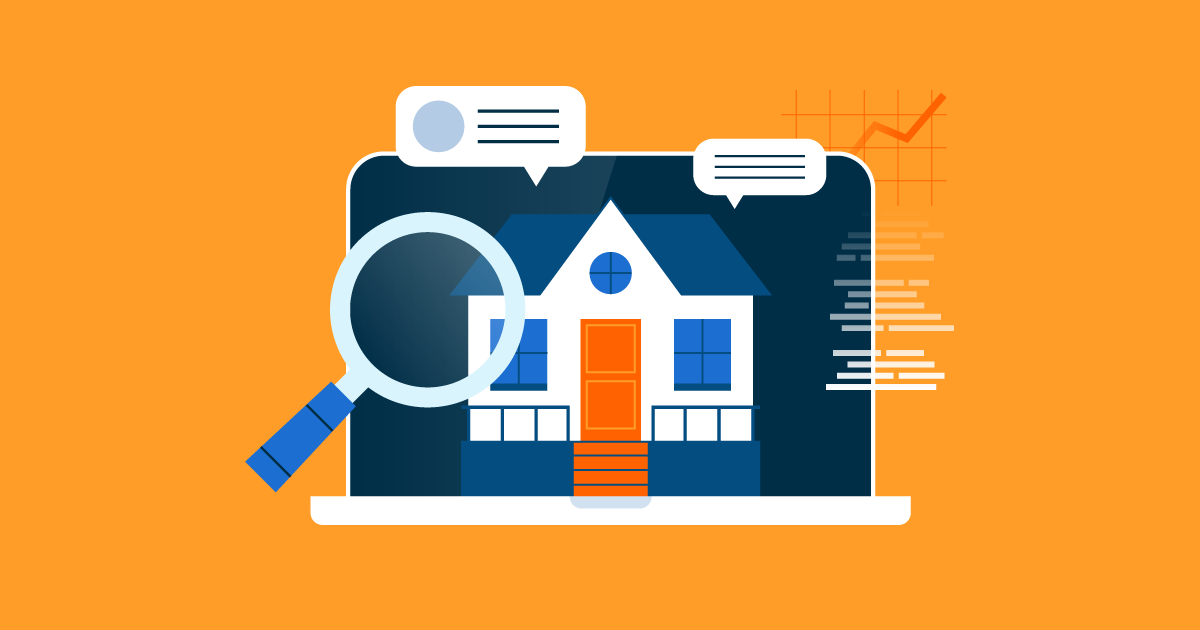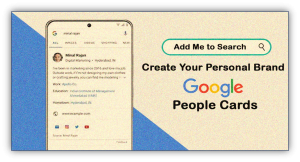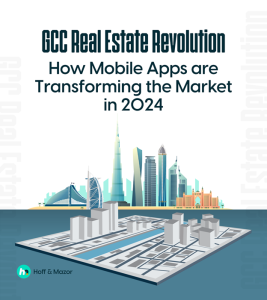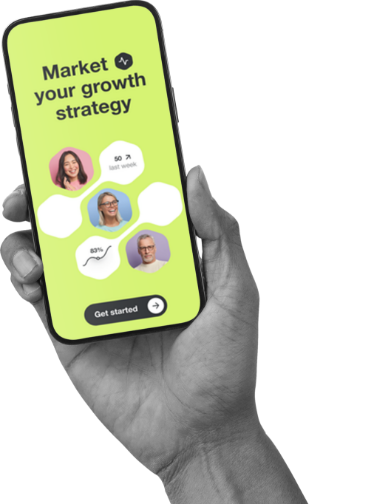The real estate industry has been revolutionized by property and lease management software, streamlining operations and improving efficiency for property owners and managers. In the US alone, the property management market is expected to reach $22.04 billion by 2023, making it a lucrative industry for software development service. With a wide range of complexity and pricing models, understanding the costs involved in developing such software can be challenging.
This comprehensive guide will delve into various aspects of property management software development, providing real-life examples to help you make an informed decision.
Property & Lease Management Software: Key Features & Benefits
As we dive into the world of property and lease management software, it’s essential to understand its core features. These include tenant and lease tracking, maintenance management, accounting and financial reporting, document storage, and communication tools. Each feature adds value to your software, enabling property managers to work more efficiently, reduce costs, and improve tenant satisfaction. By understanding these key features, property managers can choose the property and lease management software that best suits their needs and requirements. A well-rounded software solution with these essential features will streamline operations, increase efficiency, and contribute to the overall success of your property management business.
Let’s explore these essential features that make property management software crucial for property managers:
Tenant and Lease Tracking
This feature allows property managers to keep track of tenant information, lease agreements, and rent payments. It often includes automated reminders for rent due dates, lease renewals, and tenant screenings. Tenant and lease tracking features provide an organized and centralized system for managing tenant data and leases, improving efficiency and reducing the risk of errors.
Maintenance Management
Efficient management of maintenance tasks is vital for maintaining property value and ensuring tenant satisfaction. The maintenance management feature enables property managers to schedule, track, and manage maintenance requests, work orders, and inspections. This feature often includes integration with third-party vendors, making it easier to coordinate repairs and maintenance work. It also helps property managers stay compliant with local regulations and safety standards.
Accounting and Financial Reporting
Property management software should have robust accounting and financial reporting features that streamline financial operations. This includes tracking income and expenses, managing security deposits, and generating financial reports, such as profit and loss statements or balance sheets. Integrations with popular accounting software like QuickBooks can simplify data synchronization and ensure accurate bookkeeping.
Document Storage
Property management involves handling a multitude of documents, such as lease agreements, online invoice, and health insurance policies. Document storage features enable property managers to store, access, and share important documents securely and efficiently. Cloud-based storage solutions offer added benefits like remote access, version control, and secure data backup.
Communication Tools
Effective communication between property managers, tenants, and vendors is essential for smooth operations. Property management software often includes communication tools like messaging systems, email integration, and automated notifications. These tools facilitate prompt communication, keeping everyone informed and up-to-date on important matters related to the property.
Marketing and Listing Management
Property management software may also include features to simplify the marketing and listing of vacant properties. This can involve creating and managing property listings, syndicating listings to popular real estate agency websites, and tracking leads and inquiries. A well-integrated marketing and listing management feature can help property managers fill vacancies more quickly and efficiently.
Access Control and Permissions
For larger property management companies in baltimore county with multiple team members, it’s crucial to have a system that allows for customizable access control and permissions. This feature lets administrators assign roles and grant specific permissions to team members, ensuring that sensitive data and functions are accessible only to authorized users.
Property Management System Types
The property management software landscape consists of various systems designed to cater to specific property types and industries. These include residential, commercial, hotel, and industrial property management systems, each with its unique set of features and pricing models.
1. Residential Property Management Systems
These systems are designed to manage residential properties like apartments, single-family homes, and condominiums. They typically include tenant and lease management, maintenance tracking, and accounting features.
2. Commercial Property Management Systems
Designed for managing office buildings, retail spaces, and other commercial properties, these systems often include features like lease administration, tenant management, and financial reporting.
3. Hotel Management Systems
These systems are tailored for the hospitality industry, focusing on reservation management, guest services, and revenue management.
4. Industrial Property Management Systems
Industrial property management software is designed to manage warehouses, factories, and other industrial facilities, with features like inventory tracking, maintenance management, and safety compliance modules.
Estimating Costs of Property Management Software Development: The 3 Pricing Models with Examples
To understand the costs of developing property management software, we must first explore various complexity types and pricing models. These can range from simple, per-unit pricing structures to more complex, feature-based tiers.
1. Pricing of Per Unit, Per Month Model
This pricing model charges a set fee for each unit managed on the software per month, making it simple to understand and budget for. It’s a common choice for residential and small-scale commercial property management systems.
For example, you are managing a residential property with 50 units. The property management software you’ve chosen offers a per-unit, per-month pricing model at $2 per unit.
To calculate the monthly cost:
- Number of Units x Price per Unit = Monthly Cost
- 50 Units x $2 per Unit = $100 per Month
In this example, the total monthly cost for using the property management software would be $100.
2. Pricing of Feature-Based Tiers Model
In this model, the price varies based on the features included in each tier. More advanced features command higher prices, allowing customers to choose a package that best suits their needs.
For example, you’re considering a property management software with the following feature-based tiered pricing structure:
- Basic: $50 per month (includes essential features)
- Pro: $100 per month (includes advanced features and integrations)
- Premium: $200 per month (includes all features, priority support, and customizations)
Assuming you need advanced features and integrations for your property management business, you would choose the “Pro” plan at $100 per month. In this case, the total monthly cost for the software would be $100.
3. Pricing of Per Square Foot, Per Month Model
This model is often used for commercial and industrial property management systems, where the price is based on the total square footage of the managed properties.
For example, you manage a commercial property with a total area of 10,000 square feet. The property management software you’re interested in offers a per-square-foot, per-month pricing model at $0.01 per square foot.
To calculate the monthly cost:
- Total Square Footage x Price per Square Foot = Monthly Cost
- 10,000 Square Feet x $0.01 per Square Foot = $100 per Month
- In this scenario, the total monthly cost for using the project management software would be $100.
4. Other Property Management Software Costs
Apart from the main pricing models, there may be additional costs, such as onboarding fees, add-ons, and upgrades, which can impact the overall cost of the software.
Factors that Affect Property and Lease Management Software Development Costs
Several factors can impact the overall cost of developing property and lease management software. Understanding these factors will help you make informed decisions and optimize your investment.
1. Software’s UI/UX Design
The user interface and user experience play a crucial role in the software’s usability and adoption. A well-designed, intuitive interface will require a higher investment but can result in increased user satisfaction and higher adoption rates.
2. Software’s Underlying Platform
The choice of platform, such as web-based, mobile, or desktop, can influence the development cost. Web-based platforms are generally more cost-effective but may have limitations in terms of features and functionality compared to mobile or desktop applications.
3. Software Development Team Size
The size and expertise of the development team will directly impact the cost of the project. Larger teams with more experienced developers will likely charge higher rates, but they may also deliver a more polished and feature-rich product.
4. Software Development Agency Location
Development costs can vary significantly depending on the agency’s location, with agencies in countries with lower labor costs generally charging less than those in more expensive regions.
5. Software Maintenance
Ongoing maintenance, upgrades, and support will add to the overall cost of the software. A robust maintenance plan will ensure that your software remains up-to-date and secure in the long term.
6. Software Tech Stack
The choice of technologies used for the software’s development can impact the cost, with more advanced or specialized technologies generally being more expensive.
7. Software Features
The number and complexity of features included in the software will directly impact the development cost. More advanced or customized features will require additional resources and investment.
Also Read : How AI And Robotics Are Revolutionizing The Food Industry In 2023
Hiring Expert Property Management Software Developers
As the demand for property management software grows, so does the importance of hiring experienced developers to create a reliable and user-friendly product. A team of skilled developers will ensure that the software has the necessary features, complies with industry standards, and can be easily maintained and upgraded. They will also help you navigate the complexities of pricing models, ensuring that you get the best value for your investment.
Examples of Property Management Software:
Propertyware:
Propertyware offers a per-unit, per-month pricing model, with plans starting at $1 per unit per month. This model is suitable for residential property management companies looking for a simple, easy-to-understand pricing structure.
DoorLoop:
DoorLoop offers a tiered pricing model based on features, with plans ranging from $49 to $199 per month. Users can choose a plan that best suits their needs and budget, with more advanced features available at higher tiers.
RealPage Commercial:
RealPage Commercial offers a per-square-foot, per-month pricing model for commercial property management, with pricing based on the total square footage of managed properties. This model is ideal for commercial property managers with large portfolios.
AppFolio Property Manager:
AppFolio is a comprehensive cloud-based property management software designed for residential, commercial, and community associations. It offers a per-unit, per-month pricing model with a minimum monthly fee. Key features include online rent payments, maintenance request management, tenant screening, and financial reporting. AppFolio is known for its intuitive interface and extensive customer support.
Buildium:
Buildium is a popular property management software designed for residential property managers, community associations, and commercial properties. It offers a tiered pricing model based on the number of units, with plans starting at $50 per month. Buildium’s features include tenant and lease tracking, maintenance management, accounting, and online rent payments. It also provides customizable reporting and integration with popular accounting software.
Yardi Breeze:
Yardi Breeze is a cloud-based property management software designed for residential, commercial, and mixed-use properties. It offers a per-unit, per-month pricing model, with plans starting at $1 per unit per month. Yardi Breeze features include tenant and lease tracking, maintenance management, financial reporting, and online rent payments. The software also supports marketing and leasing, providing a seamless experience for property managers and tenants.
Rent Manager:
Rent Manager is a property management software that caters to both residential and commercial properties. It offers a feature-based tiered pricing model, with plans starting at $20 per user per month. Rent Manager’s features include tenant and lease tracking, accounting, maintenance management, and online rent payments. It also supports marketing and listing management, helping property managers fill vacancies more efficiently.
MRI Software:
MRI Software is a comprehensive property management solution designed for residential, commercial, and corporate real estate. It offers a customizable pricing model based on the specific needs of the business. Key features include tenant and lease management, accounting and financial reporting, maintenance management, and document storage. MRI Software also provides integrations with various third-party solutions to streamline property management processes further.
Also Read: How To Market Your Mobile App Successfully– Empower Your App’s Success With Our Guide
Final Thoughts: Developing Your Ideal Property & Lease Management Software
Developing property and lease management software can be a complex and costly endeavor, but understanding the various factors and pricing models can help you make informed decisions and optimize your investment. By considering the importance of hiring expert app developers, exploring different types of property management systems, and evaluating the factors affecting development costs, you can develop a software solution that meets your unique needs and budget constraints.
FAQs About Property Management Software Development
Which pricing strategy fits your requirements the best?
The ideal pricing strategy will depend on your specific needs and budget. Per-unit pricing is ideal for simplicity and smaller properties, while feature-based tiers provide flexibility in choosing features. For large commercial properties, per-square-foot pricing may be the most appropriate.
How long does it take to develop property management software?
The development timeline will depend on the complexity of the project, the size of the development team, and the features included. Generally, it can take anywhere from a few months to over a year to develop a comprehensive property management software solution.
Can I integrate my existing software with new property management software?
Most property management software solutions offer integration options with popular accounting, payment processing, and other software. It’s essential to discuss your integration requirements with the development team to ensure compatibility and seamless data transfer between systems.
How do I choose the right property management software for my business?
Consider the type of properties you manage, your budget, and your specific feature requirements when choosing property management software. It’s crucial to select a solution that is user-friendly, scalable, and aligns with your business goals.
Can I customize the property management software to match my unique business processes?
Yes, most property management software solutions offer customization options. You can work with the development team to tailor the software to your unique business processes and requirements. However, it’s essential to consider that customization may increase the overall development cost and timeline.







